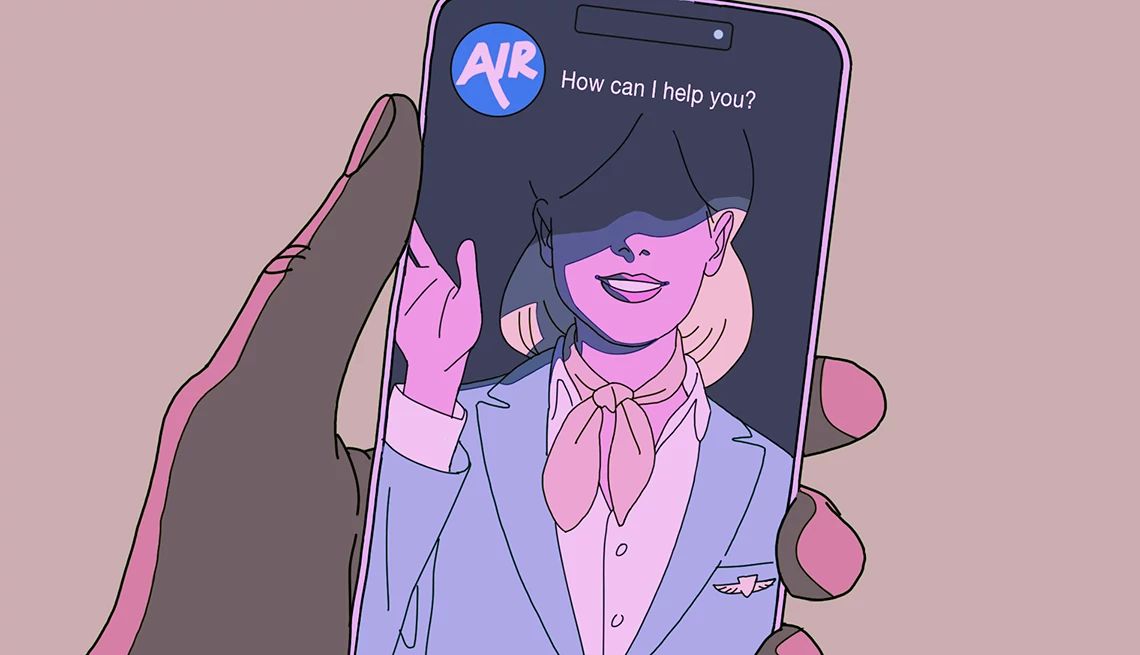In the world of frequent flying and airline bookings, scams are a widespread issue. Disguised as customer service agents, these scammers exploit the vulnerabilities of frustrated passengers and siphon off their money or steal their personal information. This article details such one such incident and sheds light on the tricks employed by these fraudsters.
Several months earlier, a couple, pseudonymously referred to as ‘Susan’ and ‘Bob’, experienced an unpleasant encounter with what they thought was an airline booking site. In their sixties, Susan and Bob, were en route to the airport when an unforeseen flat tire caused them to miss their flight from Birmingham, Alabama, to Quebec.
In the flurry to secure another flight, Susan contacted American Airlines. The agent informed them that there were no available seats on any direct flights for the upcoming three days. However, there was a glimmer of hope of reaching Quebec via Atlanta through United Airlines.
In the pursuit of quick resolution, Susan, like any other unsuspecting internet user, resorted to google to find the United Airlines website. However, she landed on a fraudulent website masked as the official United site. This unfortunate misstep was the entrance to a financial scam which Susan and Bob were oblivious about.
As she dialed the number mentioned on the fraudulent site, she had no inkling that it was a setup leading her straight to con artists. An agent, presumably from United Airlines, located Atlanta to Quebec flight for them. But, there was a catch; they were confined to two open seats in the business-class section. Understanding it to be their only feasible option and on urgency, Susan agreed.
The stick of shock hit Susan when she later browsed through her credit card account. She stumbled upon two charges, each amounting to around $1,200. One was a recognizable charge from United Airlines, and the other was a foreign entity she had never encountered before.
For Susan, her interaction had been directly with United Airlines. Therefore, this unanticipated charge puzzled her. After thorough internet research for the mystery company, she apprehended her predicament. Instead of the actual airline, she had unknowingly communicated with a dubious booking company, resulting in the unnecessarily extravagant fees.
This ordeal Susan and Bob went through is not a secluded one. Airline-related scams are no rarity. Many of these pilferages involve fraudsters posing as customer service agents, snaring innocent individuals seeking help.
A common tactic employed by these scamming groups is capitalizing on the frustrations of travelers. These unsuspecting individuals vent out their issues with airline services on social media. However, their cathartic posts become opportunities for fraudsters. Bots programmed by these scamming groups comb these posts, seeking potential targets.
Posing as customer service representatives of respected airlines, the scammer or the bot contacts the distressed traveler offering assistance. In the process, they pry information out of the individual. This compromised data, like booking confirmation number, contact details, or worse, bank details, are then utilized for illicit purposes. From stealing the passenger’s identity to siphoning off money from their accounts, the exploitation is limitless.
The encroachment of these fake customer service representatives on social media platforms is not to be underestimated. For instance, a 2024 investigation by ‘Which?’, a consumer organization based in Britain, unearthed numerous fake accounts for every prominent British airline. Counterfeit profiles of British Airways to Virgin Atlantic were abound. To add to the chaos, these fraudulent accounts outpaced the actual airlines in responding to customer queries.
These scams are an escalating menace in the world of digital customer service and online bookings. Therefore, the need for being more cautious and vigilant is paramount to avoid falling prey to such deceptions. It is always advisable to cross-verify the authenticity of the assistance by using official contact channels and avoid sharing sensitive details unless it is absolutely necessary.




